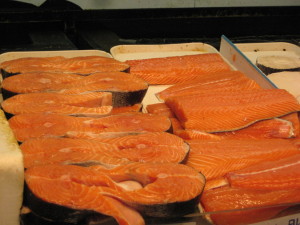By The Associated Press
EVERETT — An alliance of Washington tribes has told Gov. Jay Inslee they plan to ask the U.S. Environmental Protection Agency to step in and come up with new water quality rules for the state.
The Northwest Indian Fisheries Commission, which represents 20 western Washington tribes, sent Inslee a letter on Thursday expressing “dissatisfaction” with the governor’s proposal for updating the state’s clean water rules that are partly tied to how much fish people eat.
“The tribes’ principal objective for revised water quality standards is to protect the health of future generations, and we have determined that your proposal does not meet this goal,” the tribes wrote Inslee.
The tribes say they’re also concerned about “yet another delay.”
Tribal leaders plan to meet Monday with the EPA’s regional head, Dennis McLerran.
McLerran told a state official in April that the EPA intends to take over the process if the state doesn’t finalize a rule by 2014.
David Postman, a spokesman for Inslee, said Saturday that members of the governor’s office and the Department of Ecology will be reaching out to the commission and hope to continue discussing the governor’s proposal with the group.
Under the federal Clean Water Act, the state must adopt standards that ensure rivers and major bodies of water are clean enough to support fish that are safe for humans to eat.
After months of deliberations and pressure from all sides, Inslee said in July he will set the fish-consumption rate at 175 grams a day, which would protect people who eat about a serving of fish a day. Oregon recently adopted a similar rate, the highest for a U.S. state.
As part of a larger package to address clean water, Inslee also said he would seek legislative support for a bill to reduce toxic pollution from chemicals not covered by the federal Clean Water Act or from pollution sources such as stormwater runoff that play a major role in fouling state waters.
The tribes said in the letter that the improvement in the higher fish-consumption rate is accompanied by other less protective changes.
“It is incomprehensible that the state would consider changing the cancer risk rate in state standards to a rate that is ten times less protective,” the letter reads.
“Essentially, the proposal modifies the fish consumption rate to reflect higher levels of consumption in our state, but trades this improvement for a less protective cancer risk rate.”
Meanwhile, businesses such as Boeing and others have worried too-stringent rules would hurt jobs and economic growth because costly technologies would be required to keep certain levels of toxic chemicals out of state waters.

